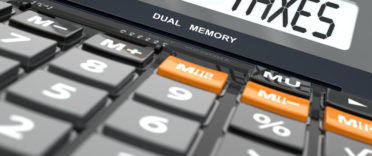Important pension changes for higher earners in 2016

Reader Question
I'm earning £111,000 per annum and am looking to reduce my tax liability (reclaim my personal allowance) with a one off pension payment.
How much do I need to put into the pension scheme? I need to weigh up impact on my NET monthly income. I am also currently paying off an underpayment from 12/13.
Darren's Response:
Please be aware that I am answering your enquiry, and the following should not be taken as my advice, as I do not have all of the relevant information about your situation that is needed before a recommendation can be made.
Firstly I suggest that you download this excellent guide to the important pension changes for higher earners such as you in 2016. It tells you when and what the changes as well as a little known opportunity for high earners such as yourself to contribute more to their pensions.
Pension changes guide for higher earners
Find out about the changes as well as a little known opportunity for high earners such as yourself to contribute more to their pensions.
Download your free pension changes factsheetThe difference to your net pay
You mention that you are repaying unpaid tax from the previous tax year, was that by virtue of adjusting your tax coding?
If we reduce your salary by sufficient to regain your personal allowance, it could make a difference to the net take home as a result
Ignoring that for a moment, in simple terms this would be the outcome.
1) In order to regain your allowance you would need to make an extra contribution of £11,000 in the current tax year so that your gross taxable income drops to £100,000. If you have the payment deducted from your salary & paid into your employer scheme at the rate of £916.67 (assuming we had started at the first pay day of the current tax year) this would reduce your take home pay by £550 per month after 40% tax relief.
2) However, you would then gain from having your personal allowance of £9,440, being untaxed, instead of taxed at 40% as it is now. In theory this would reduce your taxation by a further £314.67 per month, so your take home would only reduce by about £235.33 (i.e £550 – £314.67)
As I said at the start though, if your unpaid tax is being reclaimed via a reduced tax coding, then the impact of item 2 will be reduced accordingly.
For example if your code is reduced from 944 to 444, this means that you are being taxed on £5,000 @40% which is an extra £166.67 per month that would come out of your take home pay
Of course you mentioned paying a lump sum instead, presumably by cheque. For this you would need to write a cheque for the sum of £8,800 as this represents £11,000 after basic rate tax relief. £11,000 would be credited to your pension, and on your tax return you would show £11,000
You will then gain further tax relief of £2,200 from your self assessment, via your tax coding for next year. This will add to your recovered personal allowance. At today's rate this will increase your take home pay next year by £73.33
Consider salary exchange
If you are considering this, then I would suggest you investigate whether salary exchange is an option offered by your employer. In simple terms you ask them to pay you only £100,000 pa, and in return they pay £11,000 extra as an employer contribution into your pension.
This has the same net effect on your take home pay as the monthly deductions, so I'm guessing you'll be wondering why you would bother. In part it is because you will no longer need to worry about trying to claim any overpaid tax, as you won't be taxed on the payment in the first place. If you don't receive a salary, you can't be taxed upon it! In addition you could probably ask the tax office to send you an amended tax code based upon a £100,000 salary, i.e. one that allows for you to receive a normal tax allowance
An added benefit of Salary Exchange is that you will also not pay National Insurance on the amount exchanged, so can add this extra to the contribution. In order to pay £11,000 you would actually exchange £11,379.31 which is the amount that goes into your pension.
The best part is your employers also pays no NI on this, saving them £1,518.00.
Assuming that they agree, this would also be paid into your pension, as it is money they would normally be spending on payroll anyway. This means you will have contributed £12,897.31
Remember, your take home pay would be the same as it would be if you have monthly deductions as above. Before proceeding I would recommend that you (and possibly your employer if you are considering Salary Exchange) speak to a financial adviser . Of course I am more than happy to help if you.
I hope that answers your query clearly, but feel free to contact me further if you require more details.
Darren Amos
Financial Planning Designer
If you would like to contact Darren for help with your financial affairs you can do so via the ‘contact the adviser' button below.
The material in any email, the Money to the Masses website, associated pages / channels / accounts and any other correspondence are for general information only and do not constitute investment, tax, legal or other form of advice. You should not rely on this information to make (or refrain from making) any decisions. Always obtain independent, professional advice for your own particular situation. See full Terms & Conditions and Privacy Policy






